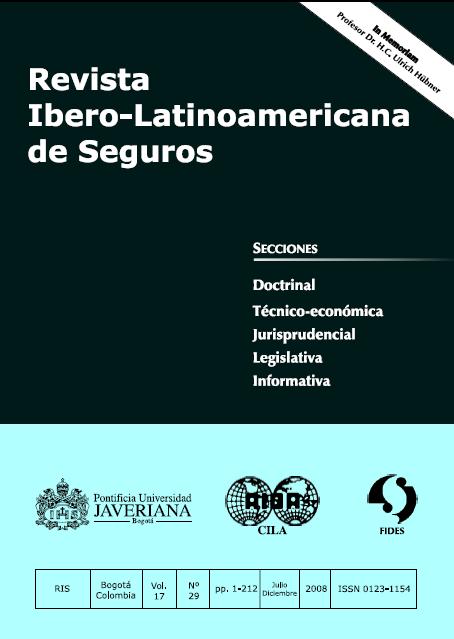Abstract
Prescription as a Law form, particularly within the practice of Insurance Law is analyzed from several important perspectives. Its form of application is worth noting particularly as to existing types of insurance, reticence or fraud, Consumer Defense law, among others without setting aside the necessary analysis of interruption and suspension of prescription.
The incidence of legal terms within this legislation is key, especially of those related to life insurances, collective insurances (a type of life insurance) and civil liability insur- ance. In the first two cases, it is worth noting the lack of differentiation as to prescription terms, and in the last one, the importance lies in the obligation of insured entities indemnity.
A long way has been covered when it comes to regulating prescription, and a recommendation is made in the sense of conducting an analytical reading of Article 3986 of the Civil Code, “releasing prescription” and its applicability within the insurance policy.
This journal is registered under a Creative Commons Attribution 4.0 International Public License. Thus, this work may be reproduced, distributed, and publicly shared in digital format, as long as the names of the authors and Pontificia Universidad Javeriana are acknowledged. Others are allowed to quote, adapt, transform, auto-archive, republish, and create based on this material, for any purpose (even commercial ones), provided the authorship is duly acknowledged, a link to the original work is provided, and it is specified if changes have been made. Pontificia Universidad Javeriana does not hold the rights of published works and the authors are solely responsible for the contents of their works; they keep the moral, intellectual, privacy, and publicity rights.
Approving the intervention of the work (review, copy-editing, translation, layout) and the following outreach, are granted through an use license and not through an assignment of rights. This means the journal and Pontificia Universidad Javeriana cannot be held responsible for any ethical malpractice by the authors. As a consequence of the protection granted by the use license, the journal is not required to publish recantations or modify information already published, unless the errata stems from the editorial management process. Publishing contents in this journal does not generate royalties for contributors.


